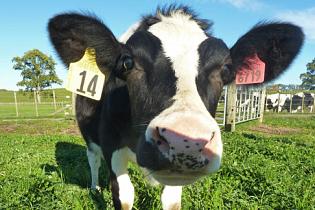Scientists create Artificial Cows for power, profit
The human being will always strive to outdo itself. One of the many studies that man goes through in order to understand its origins is the genes; strands of data passed on from one generation to another. Apply this to other animals and you’ll get results like Daisy the Cow and Dolly the Sheep.
Both animals were created in a lab, both made by man and not by nature. Both showed the world that, while flawed, man has now the ability to create life itself, albeit if only a copy. How this power is used, that is where all controversies lie. Daisy the cow was created by scientist for the purpose of providing milk without a protein that triggers an allergic reaction to milk.
A Difference in Genetic Makeup
While the goal is commendable, the purpose is doubtful as if you are allergic to beta-lactoglobulin (or BLG, the whey protein in milk that Daisy was created without) why not just drink non-dairy milk? Furthermore while Daisy’s milk contains very little amounts of BLG, it does have a concentrated dose of other milk proteins that triggers an allergy.
It doesn’t end here however, as stated; the cloning process is not yet perfect and because of this, there are unexplained consequences; such as Daisy being born without a tail. This physical detail in Daisy was not planned. This, along with the fact that Dolly died at the age of 6 when sheep’s tend to live twice that age, has led to the obvious conclusion that a genetically modified (GM) animal has obvious and non-obvious difference to a naturally born animal.
This difference has rendered many people wondering if an intake of GM milk or meat can cause a substantial change within the human body or not. Are these effects harmful or beneficial?
Meat Up for Grabs
As of today, many people have done researches about whether or not cloned meat is now being sold in grocery stores and have found that the US Food and Drug Administration has allowed it WITHOUT the need to label such products as genetically modified.
This has raised the question of whether the world really needs genetically modified animals and are they used solely for the purpose of profiteering capitalists.
A Better World
Of course, every consequence also has its moments. To date, scientists are working on genetically engineered goats, and the possibility of consumable malaria vaccines. Who knows, should the risk be lessened, maybe one day humans can also be genetically engineered to be more resistant to diseases and such.
The lust for power will always be an enemy of conscience giving birth to men who want nothing more than more money regardless of losing the only place where it can be used; then genetically modified beings should help make the world a better place; shouldn't it?
After all, if we could safely clone a cow, just how many more people could be saved from dying of starvation right?
Comments
There are 0 comments on this post













